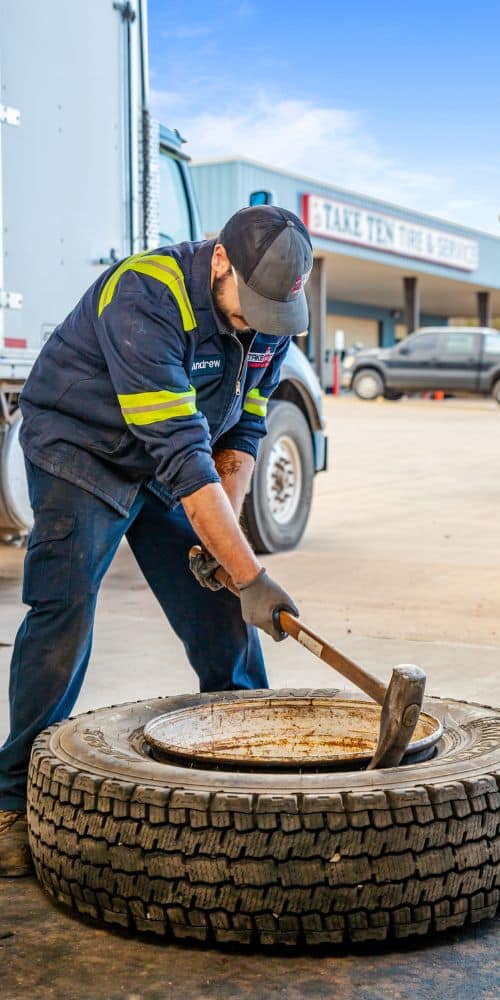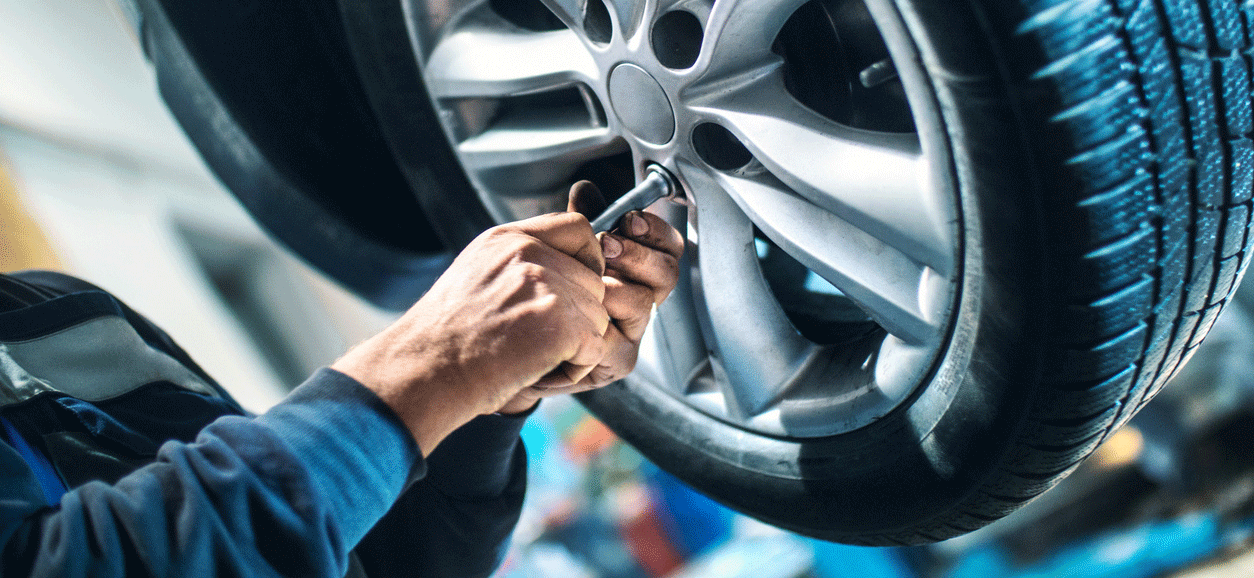Discount Tires Morris IL: Conserve Large on Top Brands
Wiki Article
The Link In Between Tire Solution and Gas Performance
Amongst the different factors that affect fuel efficiency, tire solution stands out as an important component that usually goes neglected. The detailed connection between tire upkeep and gas economic climate is a testimony to the complex workings of a car.Importance of Appropriate Tire Inflation
Correct tire inflation is a critical consider taking full advantage of fuel performance and guaranteeing optimum car efficiency. When tires are underinflated, it creates much more rolling resistance, creating the engine to function tougher and melt more fuel to maintain the very same rate. On the other hand, overinflated tires can lead to a harsher adventure, uneven tire wear, and lowered grip. To discover the suggested tire pressure for your vehicle, describe the proprietor's handbook or the sticker located on the driver's side door jamb.Keeping the right tire stress not just improves gas performance but also boosts driving safety. Consistently inspecting and changing tire pressure, particularly previously lengthy trips, is a basic yet effective means to maximize your vehicle's gas economic climate and ensure a smooth driving experience.
Effect of Tire Footstep Depth
Preserving the suggested tire pressure is crucial for optimal car performance and gas effectiveness; similarly, the step depth of your tires plays a vital duty in guaranteeing security and traction when traveling. Tire walk deepness directly affects the capacity of your tires to grip the roadway surface area, particularly in damp or slippery conditions. As tires put on down, their walk depth declines, affecting their capacity to channel water away and keep appropriate contact with the road. The recommended minimum walk depth is typically 2/32 of an inch, however for improved security and performance, several experts suggest transforming tires before they reach this point. Appropriate walk deepness not only makes sure much better handling and stopping but also adds to sustain effectiveness by lowering moving resistance. Consistently examining your tire step deepness and changing tires when necessary is an easy yet reliable way to promote both safety and security and fuel performance on the roadway.Function of Wheel Alignment in Effectiveness
Ensuring precise wheel placement is vital for optimizing vehicle performance and making the most of gas economic climate. Proper wheel placement includes adjusting the angles of the wheels to producer specs, making certain that they are alongside each various other and vertical to the ground. When wheels are misaligned, it can cause uneven tire wear, boosted rolling resistance, and reduced fuel efficiency.

In addition, accurate wheel placement can additionally boost dealing with and stability, lowering the amount of energy needed to maneuver the automobile (morris tire). By decreasing unnecessary friction and drag, appropriate wheel alignment plays a critical duty in improving overall vehicle performance and gas economic situation. Normal wheel positioning checks and adjustments are necessary for keeping optimum performance and maximizing gas savings
Link Between Tire Upkeep and MPG
A crucial element of enhancing fuel effectiveness in vehicles is the maintenance of tires and their straight effect on miles per gallon (MPG) Correct tire upkeep plays a vital function in maximizing fuel tire shop near me economy. One essential aspect affecting MPG is tire stress. Underinflated tires boost rolling resistance, creating the engine to function harder and shed more gas. On the other hand, overinflated tires lower the contact spot with the road, leading to unequal wear and reduced gas efficiency. Regularly checking and preserving the proper tire stress can substantially boost MPG.Moreover, tire step depth also affects fuel performance. By guaranteeing tires have appropriate tread depth, motorists can enhance both safety and gas economy.
Basically, correct tire maintenance, consisting of tracking tire stress and step depth, is directly connected to achieving ideal MPG. By incorporating normal tire inspections and upkeep into a lorry care regimen, vehicle drivers can not only prolong tire life but likewise enhance fuel effectiveness, eventually conserving cash and reducing environmental influence.

Tips for Fuel-Efficient Tire Care
Offered the critical relationship in between tire upkeep and gas performance, applying effective strategies for maximizing tire treatment is vital to enhancing overall car performance. To make certain fuel-efficient tire treatment, routine tire stress checks are vital. Appropriately filled with air tires reduce rolling resistance, boosting fuel performance and expanding tire life-span. In addition, keeping appropriate wheel placement and harmonizing helps distribute weight uniformly, preventing unequal tire wear and maximizing fuel usage. Revolving tires at recommended intervals promotes even walk wear, enhancing gas effectiveness by making sure all tires contribute just as to car performance. It is additionally crucial to evaluate tires for indicators of damage, such as cuts, slits, or bulges, as these issues can influence gas performance and total security. Finally, choosing tires with low rolling resistance can dramatically boost fuel economy. By incorporating these fuel-efficient tire care suggestions into a routine upkeep routine, vehicle drivers can maximize gas performance, reduce running prices, and extend the life of their tires.Final Thought
By routinely preserving tires and following fuel-efficient tire treatment ideas, vehicle drivers can optimize their automobile's performance and reduce gas consumption. It is essential to focus on tire upkeep to not just save cash on fuel prices yet likewise to promote general lorry efficiency.Report this wiki page